I remember attending the Congressional Women’s softball game on a muggy June day in 2011. Congress was in the thick of bipartisan bickering—another government shutdown was threatened—but you’d never know it from the way the female Congress members, Democrats and Republicans, were playing together, a united team hitting and pitching against the female members of the D.C. press corps
In warm-up, Democrat Kirsten Gillibrand was tossing balls with co-captain Republican Kelly Ayotte, and Democrat Debbie Wasserman-Schultz was doing deep knee bends with fellow team member Republican Jo Ann Emerson. The male members of Congress, mind you, had two separate teams—one for Republicans and one for Democrats.
Not so the gals, and when Schultz’s single drove in runners at first and second to win the game, women who were often in enemy camps during their power-suit-wearing day jobs hugged each other and high-fived like a scene out of A League of the Own. Moments later they dedicated the game to their absent colleague Gabby Giffords, who had been almost mortally wounded by a gunshot to the head months before. The good will of their teammate-hood just had to rub off in helping to govern the country, didn’t it?
Those Were The Days My Friend
I think of that moment now with both sadness and hope—because, even though politics looked divided back then, those days were halcyon next to today. In Trump’s America—and by this I mean a unique political landscape where the old rules don’t apply, where chaos and theatrics rule the day, and where citizens are up in arms on both sides of the political divide (widened now than ever before) —it seems almost impossible to put away partisan fury and initiate or maintain friendships with women (or men) of the opposite political stripe.
If anyone’s going to reach across the hate-filled chasm and try to make common cause, the likeliest candidates are females, many midlife or older.
However, if anyone’s going to reach across the hate-filled chasm and try to make common cause, the likeliest candidates are people like those on that baseball diamond: females, many midlife or older. Berkeley-based political-activist Karin Tamerius (an M.D. and a former UCSF psychiatry resident), recently started a Facebook page called SMART—Social Media Approaches for Respect and Tolerance—which, with 6,000 members, encourages progressives to reach across the chasm and befriend conservative voters.
In order to join, you have to promise to not bad-mouth President Trump. One goal is gently persuading members to change their political opinions. But the greater and more important goal is “radical civility”: making enemies into friends, even if nobody changes her or his politics. And what’s the biggest cohort in SMART? “Currently 80 percent of our membership is female and…[most] tend to be older—30s to 60s,” Tamerius says. “So, yes, there are definitely more women interested in breaching the divide.”
Throwing in the Towel?
Not that women are all kumbaya, and that includes me. In a wide swath of women I questioned, some have regretfully thrown in the towel on some deeply conservative childhood friends and family members. This includes a New York-based fiction writer and teacher (a Democrat, like me) who just happens to be one of the most thoughtful and gracious women I know. I would imagine it takes a lot to get her angry. But when, after Trump’s election, her attempts at civil political dialogue with a female relative turned testy, “I made some sarcastic comment and she raised an eyebrow at me, and I lost it.” After a cooling down period, “I was willing to have a more substantial conversation, but she didn’t take me up on it and it makes me kind of sad.” She left it at that, at least for the time being.
“I made some sarcastic comment and she raised an eyebrow at me, and I lost it.”
In reconnecting with childhood friends on Facebook, she found out that some people on the other side of the political divide “turned out to be rabid, and I’m still kind of amazed that boys I held hands with in the movies turned out this way.” Her husband disagrees with her “take-no-prisoners approach,” she says, “and tries to make me a more open-minded debater, but, screw it, I’m not going there,” she says, defiantly. Like her, when policies are proposed by the new administration that I disagree with—or, let’s be blunt, find abhorrent—I am quick to type out scorched-earth activist words on social media.
Republican and Democrat Friends: Caught in the Facebook Fire
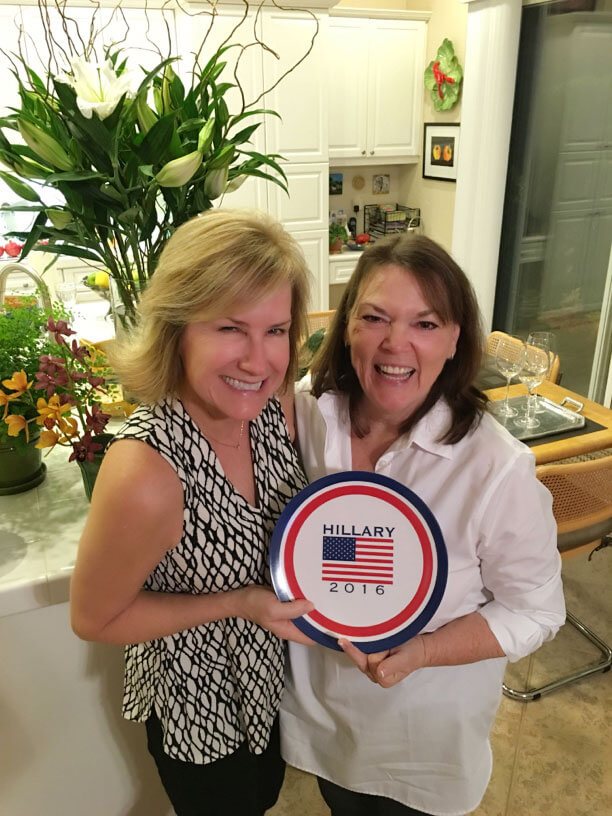
Long-time friends Lisa Leonard-Adler, a Democrat, and Diane Haynie a Republican, on the eve of the election when Diane thought Hillary was going to win. Notice her finger in this photo.
But when you’re arguing—digitally—with friends with whom you radically disagree, it can be tricky. I value my friendly acquaintanceship with a strong conservative writer named Lisa Schiffren, who, among other things, years ago wrote the famous “Murphy Brown” speech against single motherhood for Dan Quayle. Before I even met her, I admired how she, whose politics were widely known, would Facebook-friend so many staunchly Democratic women—and join in happily safe online schmooze-fests about an actress’s bad or (good) face lift, her new hottie (or baddie) boyfriend, or the likeability or hatefulness of various characters in TV shows like “The Affair” and “This Is Us.” It felt like she was waving a peace flag: I may disagree with you politically but on some kick-back-with-a-glass-of-wine level, we’re all the same. A nice thing to be reminded of.
Then Trump won, and she and her social media base reveled in it, and I was pained and livid. Though I tried to resist doing so, I would ram in on Lisa’s Facebook passionately pro-Trump threads with my own strong counter-opinions. I did this just the other day. Sometimes I private message Lisa afterward to let her know that, despite it all, I’m still her bud. Lisa says, “I appreciate that you stay in private contact when we are disagreeing heatedly in public. Private is the meaningful contact. It affirms that there are things that bond people beyond politics.”
We’re bigger, not smaller, by not cutting people out of our life because of their politics.
The reason Lisa has so many liberal women friends, she says, is because she was liberal before she turned conservative and her long-held liberal friends “are friends from real life. A serious handful of the liberal women I truly love actually do things that I oppose deeply.” But she’s been able to stay close to them because “we have history as glue.” The strength of that loyalty is “heartwarming and deeply meaningful,” Lisa says. We’re bigger, not smaller, by overcoming the easy way out: cutting people out of our life because of their politics.
Can We Really Be Kindred Spirits?
Women who manage friendships despite glaring political disagreement are to be admired. Anne Dodd, a Florida-based actress and theater director, is someone who has always been passionate about discrimination—not only does she have two biracial young-adult sons, but I’ve heard heard her talk about the suffering of her forebears, the downtrodden Irish, at the hands of the English during the 1846 Famine with powerful indignation. So, a Democrat she certainly is.
Anne sums things up with feminist spirit: “A true female friendship transcends politics.”
Yet ten months ago—not years, months—in the heated run-up to the election, she made friends with a woman who “felt like my kindred spirit in many ways. She makes me laugh out loud, and in my book that counts for a lot.” Anne was shocked to find her new friend was “a big Trump supporter.” Her realization that this person she felt so instinctively connected to—so like-minded with—was on “The Other Side” heightened her understanding of the fact that people are more than their politics.
That was a bracing lesson, and one that’s useful to someone who, in her theater work, explores the depths of human character. “We agreed to never discuss politics; we appreciated our friendship too much. One morning we were discussing the mystery of dolphins who beached themselves. I said it was to protest the election results. She laughed— and that was my only snarky comment.” Anne sums things up with feminist spirit: “A true female friendship transcends politics.”
The Sneaky Finger
While Anne and her friend have known each other less than a year, Lisa Leonard-Adler, a San Diego-based art consultant, and Diane Haynie, an interior designer, have known each other for thirty years. “I adore her,” Lisa, a fervent Democrat, says of Diane, a moderate Republican. Diane elaborates: “I consider Lisa one of my dearest friends. We have been through marriages and divorces and deaths and illnesses and life’s disappointments together. We have met for lunch every four to six weeks for many years, always the same day of the week and the same place, and we spend two to three hours talking and laughing and catching up with our lives.”
“Don’t take ourselves and our opinions too seriously” became a friendship rule.
As to their political divide, “I respect not only Lisa’s political opinions but also her delivery of those opinions, as I think she does mine.” Everything was fine—they knew how to keep politics out of their closeness—until Diane shared her opinions on Lisa’s Facebook page. Diane was subjected to “repeated verbal attacks by her many liberal Facebook friends,” she says, and it hurt. “Our political differences were highlighted this year by the presence of social media, and I had to distance myself from that part of her life.”
So they took social media out of their friendship mix and made a vow not to discuss politics and, Lisa says, “to agree to disagree, and” —not unimportantly—“not to drink too much” when they talked. Just before Election Day, Diane brought Lisa a china serving plate with Hillary’s name on it (for Lisa’s upcoming Election Night party, because Lisa knew she would win). “I was so tickled” by the gesture, Lisa says. They took a picture holding the plate, and Lisa didn’t even notice that Diane was sneakily giving it the finger. An out-of-character bit of mischief, which made it all the funnier. “Don’t take ourselves and our opinions too seriously” became a friendship rule, Diane says. It remains so today. In fact, the rule—and their ability to have made it through the social media acrimony of the last year—made their friendship stronger.
Breaking Bread with Ann Coulter and Kellyanne Conway? Really?
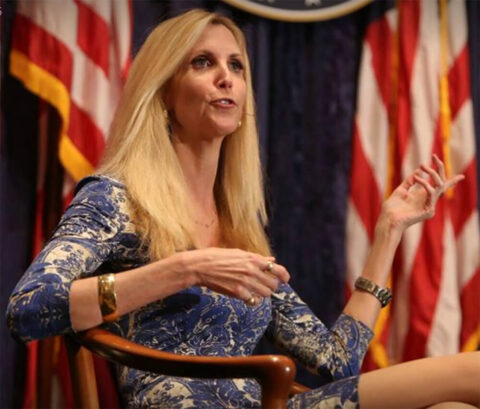
Ann Coulter is the kind of person who steps up, says a Democrat friend.
I realize this piece is accidentally filled with women named Lisa, so here’s the Lisa story piece de resistance: My good friend, highly respected political writer Lisa DePaulo, is a more or less centrist Democrat (though she sneers at the label “centrist”; Lisa’s politics are purely her own). While she has a lot of very close women friends who are Democrats, she loves hanging out with Republican women, a habit she picked up twenty years ago when she was a star reporter at George magazine and her editor and friend John Kennedy Jr. encouraged bringing both parties into the magazine’s fold. “Republican women are fun,” Lisa says. “They’re not doom and gloom and earnest.”
For years, including recently (“though it’s been harder,” both situationally and emotionally, “since Trump’s election”) she and a group of women who don’t share her politics—including Ann Coulter and sometimes Kellyanne Conway—would get together for meals “where we gossiped about celebrities and complained about getting older and typical female things” and left politics off the table.
“Two of the women coming with me would have had gone into coronary arrest if Coulter had walked in.”
Six months ago, Lisa was finishing her valiant (and successful) battle with breast cancer. Ann Coulter, who, Lisa says, “is someone who, if you have a problem, she steps up,” wanted to support Lisa through a chemotherapy session. Taking a day to attend a friend’s chemo is pretty unselfish work. I never gave up my time to accompany Lisa to Sloan Kettering (a fact I have felt guilty about), though she has three wonderful friends, all staunch Democrats, who always did. Lisa declined Ann’s generous offer with a polite made-up excuse, but the real reason was that “two of the women coming with me would have had gone into coronary arrest if Coulter walked in.” A full-scale political battle among her friends while she was sitting with the chemo drip coming through the needle in her arm? “Yeah, right,” Lisa thought. “That’s all I needed.”
A Silver Lining. A Tiny One
Here was my takeaway when I heard that very casually proffered story: I have never liked one single thing about Ann Coulter. Her political statements seemed ostentatiously mean-spirited. But Lisa’s recounting of the incident flipped my thinking in an instant. Really? Ann Coulter did that? Then I had an instant follow-up thought: Maybe you can separate a woman’s politics from her personal character. Who knew? And shame on me, well, a little bit, at least, for emphasizing a person’s politics (and shtick) over consideration of the possibility that she could be a decent human being underneath layers of attention-getting provocateur posturing.
Then I had an instant follow-up thought: Maybe you can separate a woman’s politics from her personal character.
That was a tiny silver lining from what is a storm of a political divide, and, for me, a storm of an administration.
But sometimes you had better take any small silver linings you can get. I think back to the 2011 Congressional Women’s baseball game and remember all those high fives between women who would, the next day, return to partisan warfare. Maybe the warfare got a little less warlike after, with skinned knees, mussed hair, and sweaty armpits, they won that game together.
TAKE OUR SURVEY How do you handle friends on the other side of the political divide? Click here for a 2 question poll.

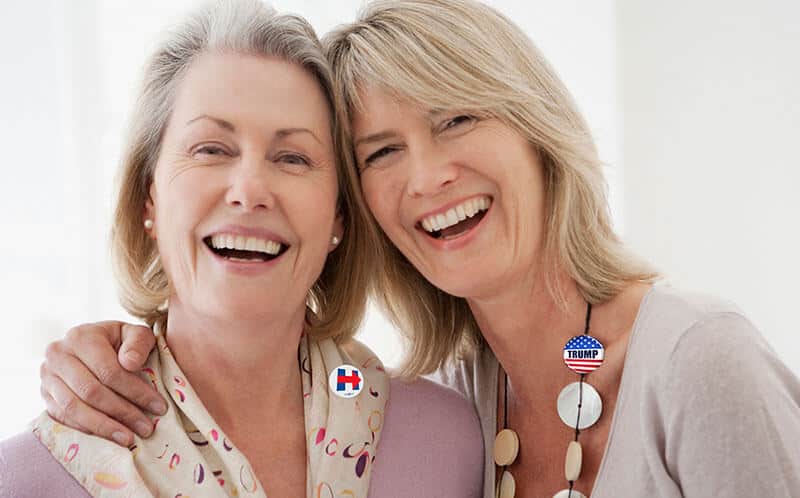







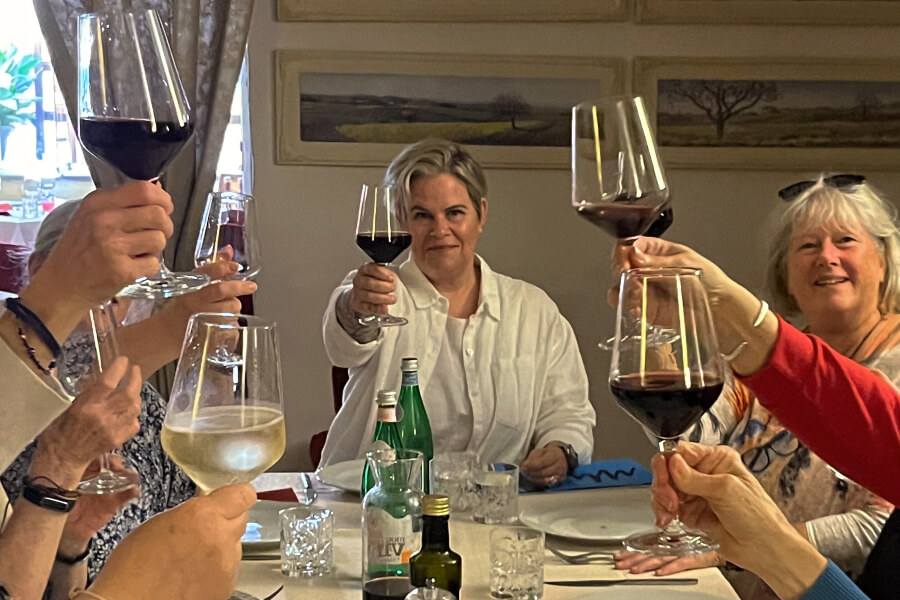





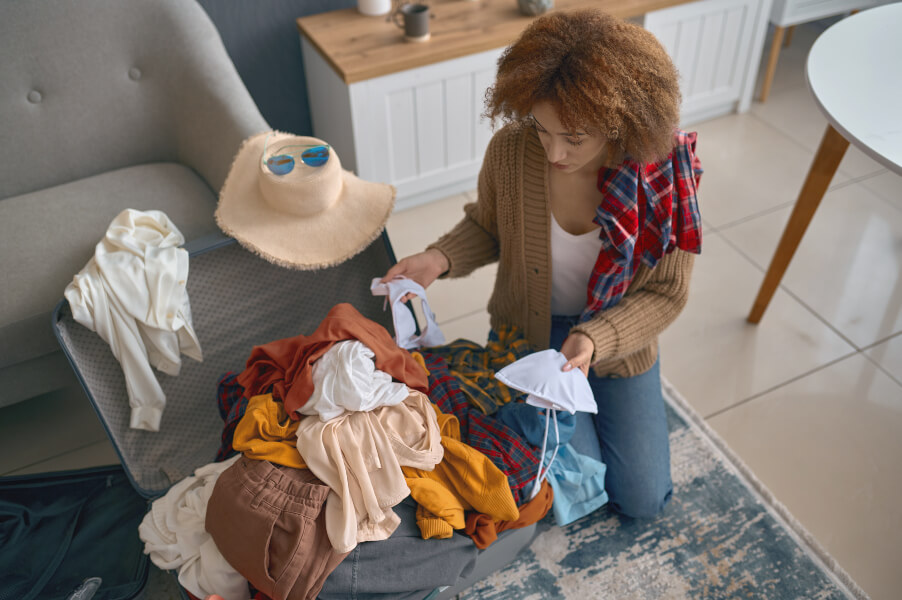

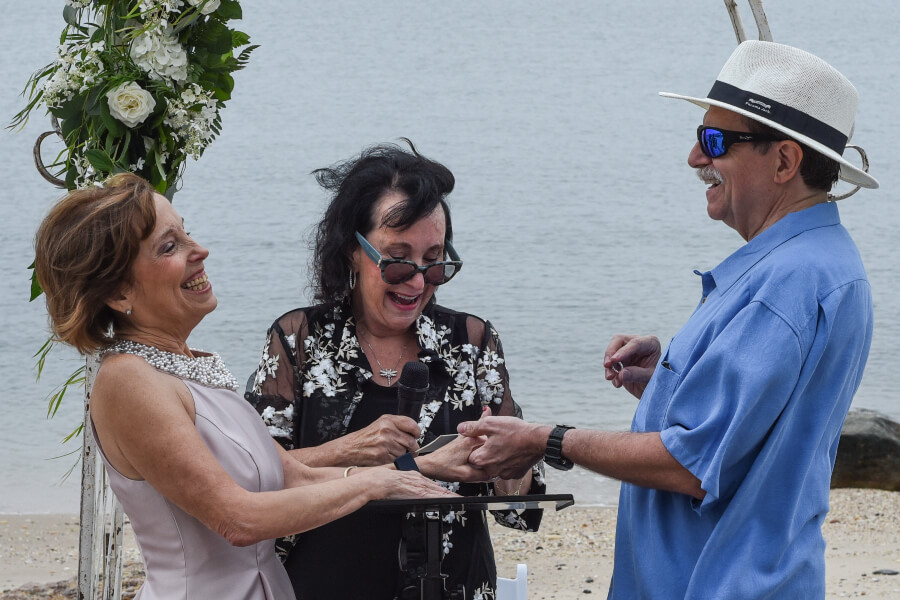
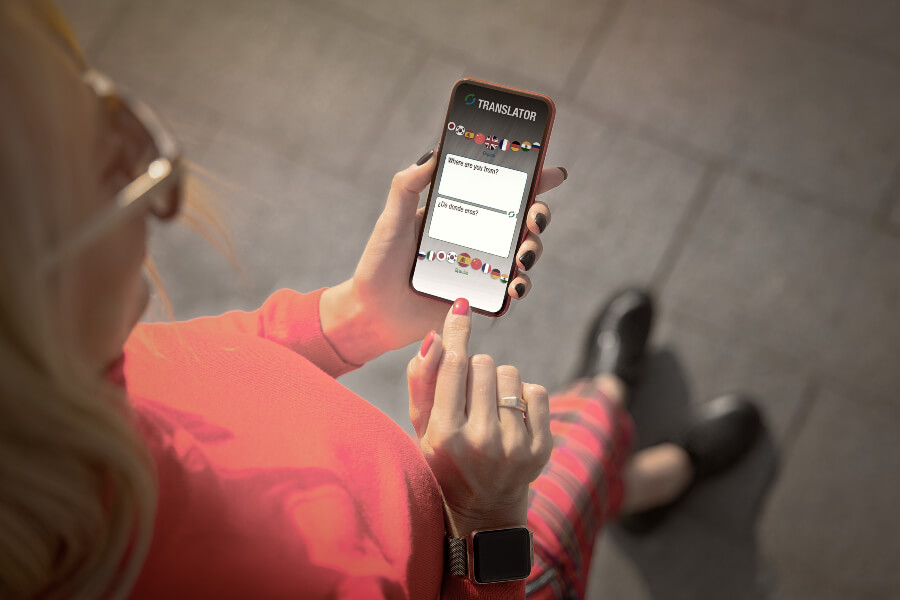


0 Comments